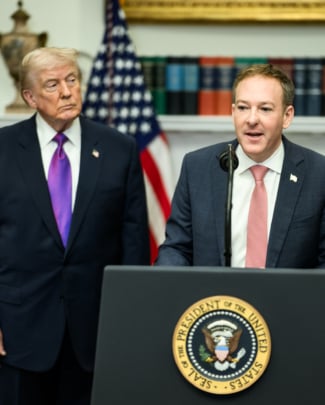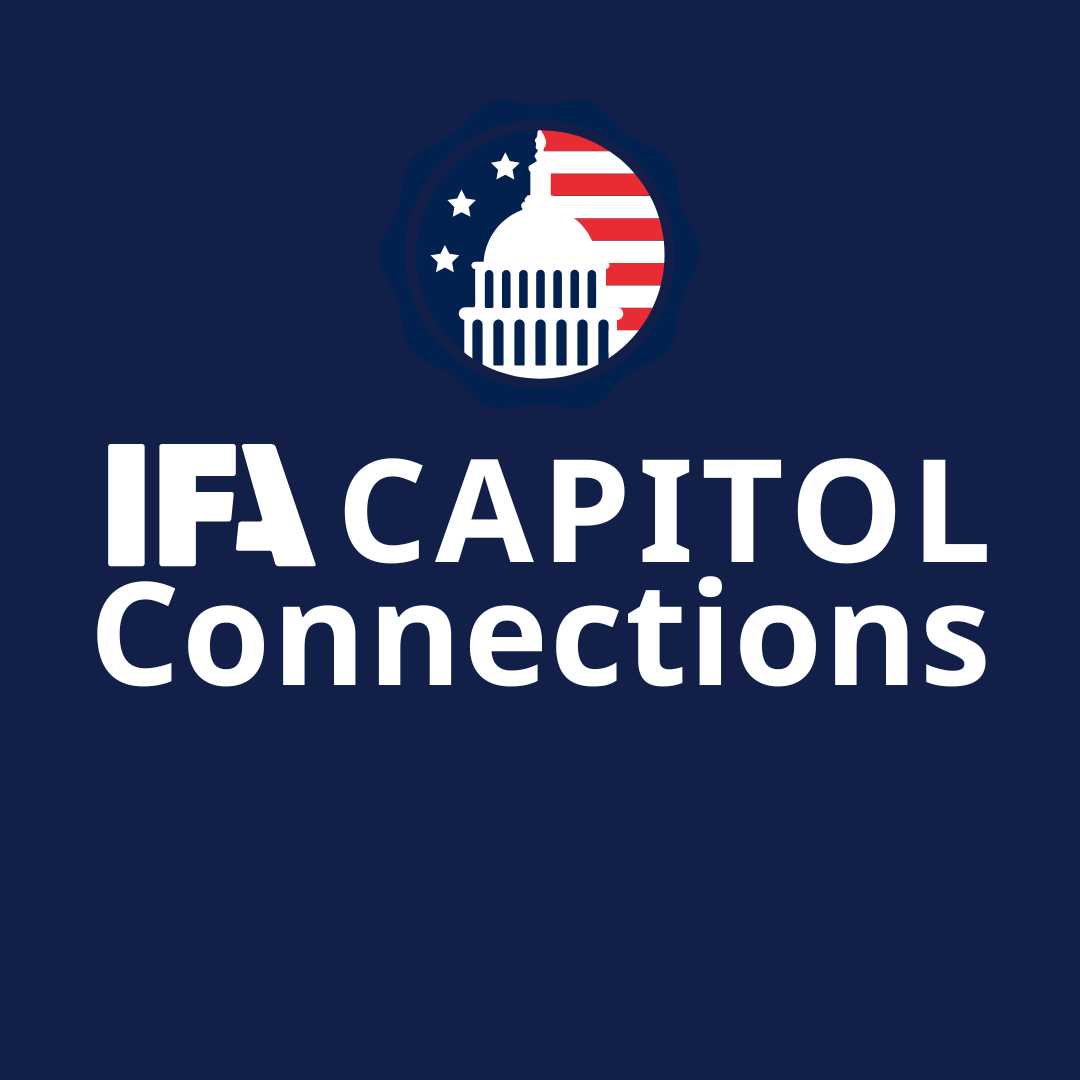WHY WE CELEBRATE THANKSGIVING
SURVEY: WHAT ARE AMERICANS THANKFUL FOR IN 2020
GOD MIRACULOUSLY SAVED THE PILGRIMS IN 1623
EVIDENCE OF HUNTER BIDEN BUSINESS LINKED TO CHINA
NEW U.S. POLICY: WEST BANK PRODUCTS ‘MADE IN ISRAEL’
WHY WE CELEBRATE THANKSGIVING
Innumerable blessings have been bestowed upon the United States of America. Concerning these blessings President Lincoln wrote:
“No human counsel hath devised, nor hath any mortal hand worked out these great things. They are the gracious gifts of the Most High God.” President Lincoln went on to set apart the last Thursday of November as “a day of thanksgiving and praise to our beneficent Father who dwelleth in the heavens.”1
While President Lincoln established America’s official Thanksgiving holiday in 1863, it was the Pilgrims who first celebrated a day of Thanksgiving in this land in 1621 and who set an example that many followed in the succeeding years.2
As the Pilgrims gathered their harvest in the autumn of 1621 and looked back over the preceding year, they had so much for which to be thankful that they decided to set aside a day of Thanksgiving unto God, Whom they acknowledged as the Giver of all blessings and the only reason for their survival. It was indeed a miracle that they did survive their first year in the wilderness of New England and had a good harvest. Desire for a home where they could freely worship God, and the desire to “propagate… the Gospel of the kingdom of Christ” and be stepping stones for others to do the same, motivated a band of Christians later called Pilgrims) to set out on a hazardous voyage to plant a colony in the new world of America.
After sixty-six perilous days at sea, where the storms were so great that they were blown unknowingly hundreds of miles north of their intended destination, they reached Cape Cod. The captain attempted to sail south to Virginia, but the weather forced them to settle in New England. They later learned that the site they chose for a settlement – Plymouth – had been the home of the Patuxet Indians. Had they arrived a few years earlier, there would have been no place for them to settle, but a plague had mysteriously wiped out the Patuxet tribe in 1617, and no other tribe would settle in the area for fear of the same thing occurring to them.
Winter had already set in as they started to build houses to protect themselves from the unrelenting cold. Scurvy and other diseases began to infect the settlers due to the long voyage, lack of provisions, and unaccommodating conditions People began to die so rapidly that in two or three months’ time only half of the original 102 persons remained. While this was quite a tragedy, they still fared much better than the early settlers at Jamestown, who saw nine out of ten persons die in the first years of colonization.
During this dark winter in America, the Christian character of the Pilgrims shone brightly. At the time of greatest distress, there were only six or seven persons strong enough to move about. With the sick they “spared no pains night nor day, but with abundance of toil and hazard of their health, fetched them wood, made them fires, dressed them meat, made their beds, washed their loathsome clothes clothed and unclothed them; in a word, did all the homely and necessary offices for them which dainty and queasy stomachs cannot endure to hear named; and all this willingly and cheerfully, without any grudging in the least, showing herein their true love unto their friends and brethren. A rare example and worthy to be remembered.”3
Though half of their number survived, the prospects of the coming year looked very bleak – they were surrounded by Indians, some hostile, they were short of food and supplies, and they knew little of how to survive in the American wilderness. But to their astonishment, and gratitude to God, an English-speaking Indian named Squanto came among them, took them under his care, and taught them how to survive in the new land.
He showed them how to plant corn, assuring its growth by setting it with fish; he taught them how to catch fish and the times when they could find the creeks stocked with fish (for the Pilgrims had only caught one cod in the preceding four months); he taught them to stalk deer, plant pumpkins, find berries, and catch beaver, whose pelts proved to be their economic deliverance.
Squanto was also helpful in securing a peace treaty between the Pilgrims and surrounding Indian tribes, which lasted over fifty years. In the words of William Bradford, “Squanto… was a special instrument sent of God for their good beyond their expectation.”4 His life story is amazing in itself.
In 1605, Squanto, a member of the Patuxet Indian tribe, was captured by an English explorer and taken to England. He remained there nine years, during which time he learned to speak English. In 1614, Captain John Smith took him back to New England, but shortly after this he was again taken captive and sold into slavery at a port in Spain. Providentially, some local friars bought and rescued him.
From Spain, he eventually went to England where he remained until 1619, when he obtained passage back to his home in New England. As Squanto went ashore at what was to become Plymouth, he found his entire tribe had been killed by a plague. He was the only survivor of the Patuxet tribe. Joining himself to a nearby tribe, he remained there until the spring of 1621 when he joined himself with the Pilgrims, determining to see them survive at the place where his tribe had not.5
Thanks to God, his instrument Squanto, and the character and determination of the Pilgrims, half of them had survived an unimaginably difficult first year. Moreover, they harvested a sufficient food supply for their second winter at Plymouth. Even though there was no surplus food, things looked much better than the preceding winter.
Governor Bradford appointed a day of Thanksgiving and invited the nearby Wampanoag Indians (Squanto’s adopted tribe) to celebrate and give thanks unto God with them. Chief Massasoit and ninety of his men came and feasted with the Pilgrims. They ate deer, turkey, fish, lobster, eels, vegetables, corn bread, herbs, berries, pies, and the Indians even taught the Pilgrims how to make popcorn. The Pilgrims and Indians also competed in running, wrestling, and shooting games. Massasoit enjoyed himself so much that he and his men stayed for three days.6 It is easy to see where the American tradition of feasting at Thanksgiving began.
While many people today follow the Pilgrim’s example of feasting at Thanksgiving, they too often ignore the entire reason that the Pilgrims set aside a special day – that was to give thanks to Almighty God and acknowledge their utter dependence upon Him for their existence. While many today take ease in having plenty, never seeing a need to cry out to God, the Pilgrims relied upon God in their lack and thanked Him in their abundance. Their trust was in God and not in their abundant provisions. This was seen even more fully in the two years following their first Thanksgiving.
Shortly after their Thanksgiving celebration, thirty-five new persons unexpectedly arrived who planned to remain and live at Plymouth. These being family and friends brought much rejoicing, but when they found out they had no provisions it also brought a soberness. Yet their reliance was upon God, so they gladly shared their food, clothing, and homes. With the new additions, their food, even at half allowance for each person, would last six months at most.
Their provisions had almost completely run out when they spied a boat in May of 1622. They hoped the English Company who had sponsored their colonizing Plymouth had sent provisions; however, this boat not only did not bring any food (nor the hope of any), but seven more hungry people to stay in Plymouth. In their extreme hunger, as in times of plenty, they put their complete trust in God to provide.
No one starved to death yet, it would be over a year before famine was completely removed from their midst. During that time there were many days where they “had need to pray that God would give them their daily bread above all people in the world.”7
That spring and summer of 1622 God miraculously fed them, even as the ravens fed Elijah in the wilderness. He provided because the Pilgrims had determined to walk in the way of their Lord Jesus. This was most evident in early summer when sixty “lusty” men (as Bradford called them) came to them for help. Even though these men showed no gratitude, the Pilgrims still gladly took care of them, for many were sick. They gave them housing and shared their meager provisions. This they did for almost the entire summer until the men left.
Like the year before, the harvest of 1622 proved insufficient to meet the Pilgrims’ needs. Outside help appeared doubtful, so the Pilgrims considered how they could produce a larger harvest. Through God’s wisdom they chose to replace the collective farming they had practiced the two preceding years (being imposed upon them by their sponsoring company) with individual farming, assigning to every family a parcel of land.
Bradford wrote: “This had very good success, for it made all hands very industrious, so as much more corn was planted than other wise would have been by any means the Governor or any other could use… and gave far better content. The women now went willingly into the field, and took their little ones with them to set corn, which before would allege weakness and inability; whom to have compelled would have been thought great tyranny and.”8 As they were freed from economic communism and entered into individual enterprise, abundance began to come upon these people.
The Pilgrims learned the hard way that communism doesn’t work, even among a covenant community. Bradford wrote that,
“the experience that was had in this common course and condition, tried sundry years, and that amongst godly and sober men, may well evince the vanity of that conceit of Platos & other ancients, applauded by some of later times; – that the taking away of property, and bringing in community into a common wealth, would make them happy and flourishing; as if they were wiser than God.”9
The Pilgrims’ hard work, resulting from them being able to directly benefit from the fruit of their labors, caused them to plant about six times more crops than the previous year. While labor certainly increases our prosperity, there are other factors. God wanted the Pilgrims to never forget that it is the Lord that gives men the power to get substance or wealth (Deut. 8:18).
The Pilgrims had great hopes for a large crop, yet as Bradford wrote,
“the Lord seemed to blast, & take away the same, and to threaten further & more sore famine unto them, by a great drought which continued from the 3. week in May, till about the middle of July, without any rain and with great heat (for the most part) insomuch as the corn began to wither away.”10
In response to this,
“they set a part a solemn day of humiliation to seek the Lord by humble & fervent prayer, in this great distress. And he was pleased to give them a gracious & speedy answer, both to their own & the Indians admiration, that lived amongst them. For all the morning, and greatest part of the day, it was dear weather & very hot, and not a cloud or any sign of rain to be seen, yet toward evening it began to overcast, and shortly after to rain, with such sweet and gentle showers, as gave them cause of rejoicing, & blessing God. It came, without either wind, or thunder, or any violence, and by degrees in that abundance, as that the earth was thoroughly wet and soaked therewith. Which did so apparently revive & quicken the decayed corn & other fruits, as was wonderful to see, and made the Indians astonished to behold.”11
An Indian named Hobamak who witnessed this event said to a Pilgrim: “Now I see that the Englishman’s God is a good God, for he hath heard you, and sent you rain, and that without storms and tempests and thunder, which usually we have with our rain, which breaks down our corn, but yours stands whole and good still; surely your God is a good God.”12
The harvest of 1623 brought plenty to each person, with the more industrious having excess to sell to others. From the time they started a biblical economic system, no famine or general want ever again existed among them.
That autumn of 1623, the Pilgrims again set apart a day of Thanksgiving unto God. They had much to give thanks for and knew Who to acknowledge.
Each year when we celebrate Thanksgiving, let us remember the heritage of that day and why the Pilgrims, as well as President Lincoln set aside a day of Thanksgiving. In the words of Lincoln, proclaiming the second National Thanksgiving Day: this is “a day of thanksgiving and praise to Almighty God, the beneficent Creator and Ruler of the Universe.”13
(Used as permission from Providence Foundation. Article by Stephen McDowell. Photo Credit: Unsplash.)
Share your prayers for this Thanksgiving season in the comments below!
Partner with Us
Intercessors for America is the trusted resource for millions of people across the United States committed to praying for our nation. If you have benefited from IFA's resources and community, please consider joining us as a monthly support partner. As a 501(c)3 organization, it's through your support that all this possible.


We use cookies to ensure that we give you the best experience on our website. If you continue to use this site we will assume that you are happy with it. Privacy Policy





Comments
Thank you so much for this article. Thank God for those brave people.
God, how remarkable it is that when we acknowledge your Presence and Sovereignty, we have a common bond of humility, peace, and joy with our neighbors. Your Presence is the Game Changer! We invite you into our Thanksgiving celebration as David invited the ark to its permanent city in Jerusalem. 1 Chron 16:8-36:
8 Give praise to the Lord, proclaim his name;
make known among the nations what he has done.
9 Sing to him, sing praise to him;
tell of all his wonderful acts.
10 Glory in his holy name;
let the hearts of those who seek the Lord rejoice.
11 Look to the Lord and his strength;
seek his face always.
12 Remember the wonders he has done,
his miracles, and the judgments he pronounced,
13 you his servants, the descendants of Israel,
his chosen ones, the children of Jacob.
14 He is the Lord our God;
his judgments are in all the earth.
15 He remembers[c] his covenant forever,
the promise he made, for a thousand generations,
16 the covenant he made with Abraham,
the oath he swore to Isaac.
17 He confirmed it to Jacob as a decree,
to Israel as an everlasting covenant:
18 “To you I will give the land of Canaan
as the portion you will inherit.”
19 When they were but few in number,
few indeed, and strangers in it,
20 they[d] wandered from nation to nation,
from one kingdom to another.
21 He allowed no one to oppress them;
for their sake he rebuked kings:
22 “Do not touch my anointed ones;
do my prophets no harm.”
23 Sing to the Lord, all the earth;
proclaim his salvation day after day.
24 Declare his glory among the nations,
his marvelous deeds among all peoples.
25 For great is the Lord and most worthy of praise;
he is to be feared above all gods.
26 For all the gods of the nations are idols,
but the Lord made the heavens.
27 Splendor and majesty are before him;
strength and joy are in his dwelling place.
28 Ascribe to the Lord, all you families of nations,
ascribe to the Lord glory and strength.
29 Ascribe to the Lord the glory due his name;
bring an offering and come before him.
Worship the Lord in the splendor of his[e] holiness.
30 Tremble before him, all the earth!
The world is firmly established; it cannot be moved.
31 Let the heavens rejoice, let the earth be glad;
let them say among the nations, “The Lord reigns!”
32 Let the sea resound, and all that is in it;
let the fields be jubilant, and everything in them!
33 Let the trees of the forest sing,
let them sing for joy before the Lord,
for he comes to judge the earth.
34 Give thanks to the Lord, for he is good;
his love endures forever.
35 Cry out, “Save us, God our Savior;
gather us and deliver us from the nations,
that we may give thanks to your holy name,
and glory in your praise.”
36 Praise be to the Lord, the God of Israel,
from everlasting to everlasting.
Then all the people said “Amen” and “Praise the Lord.”